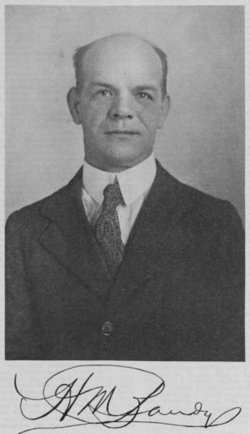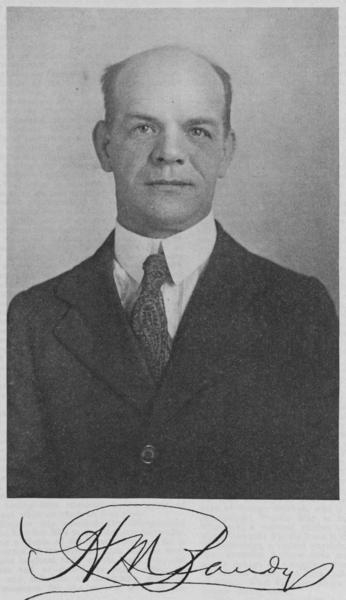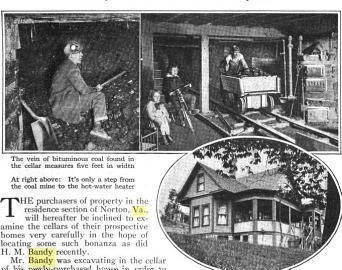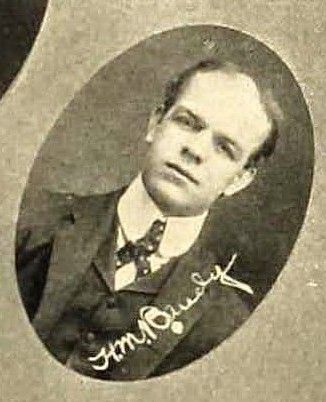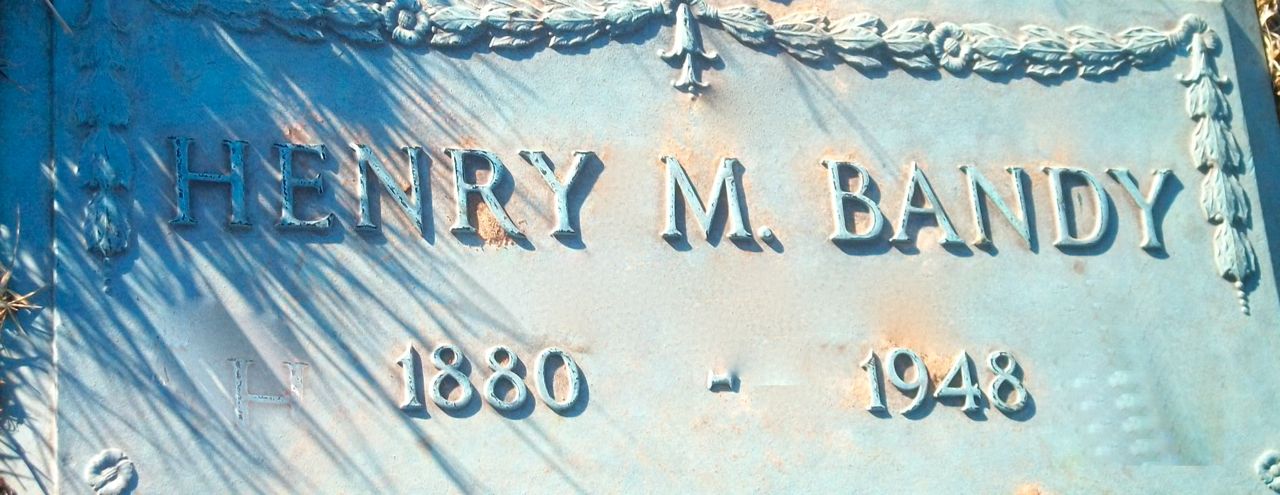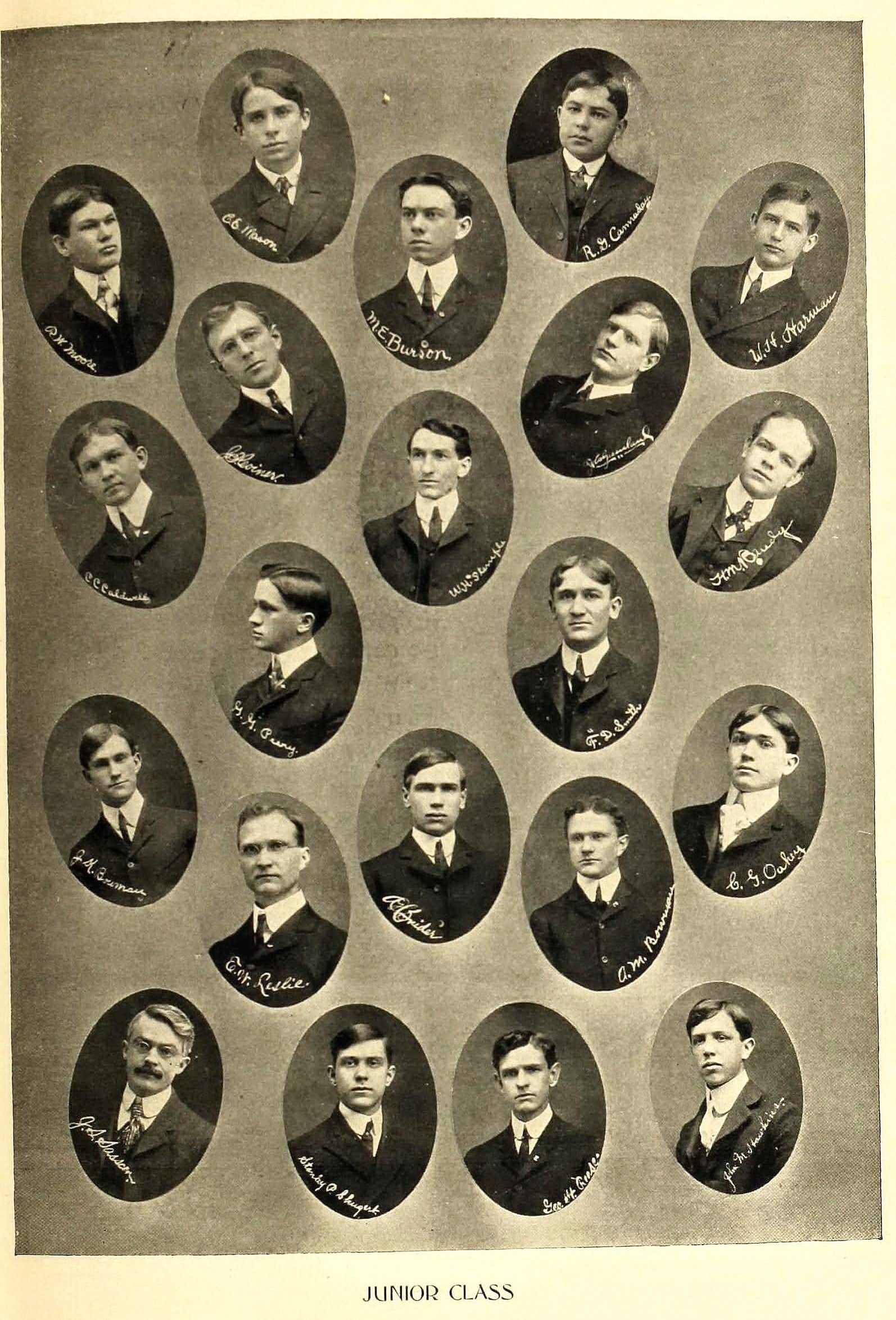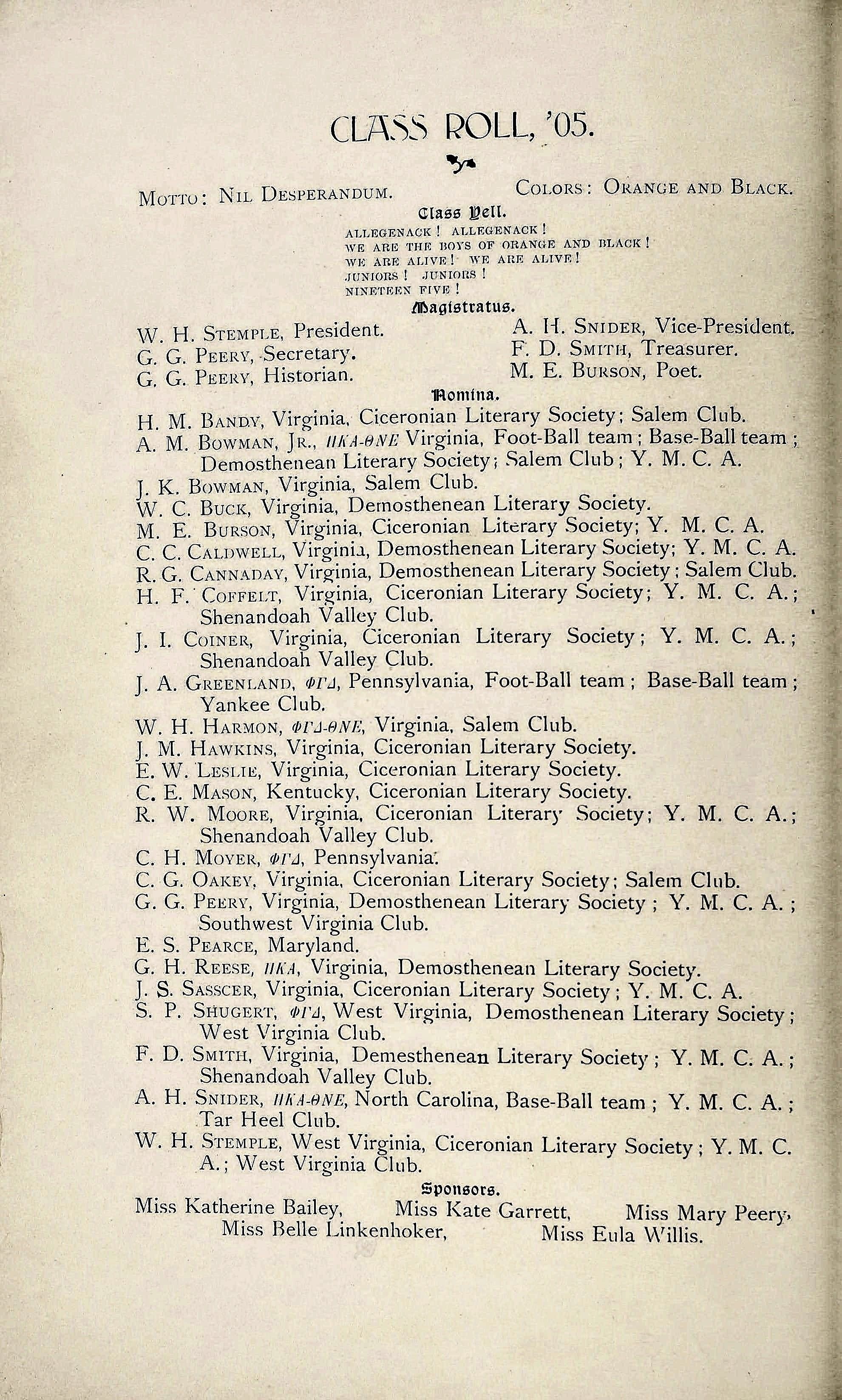found through Google Books search
The Popular science monthly, Volume 91
July - December 1917
Modern Publishing Company, 225 West 39th St., NY
pg. 215
Coal may sell at eighteen dollars a ton but this fortunate lawyer can have all he wants at thirty cents
The vein of bituminous coal found in the cellar measures five feet in width
At right above: It's only a step from the coal mine to the hot-water heater
THE purchasers of property in the residence section of Norton, Va.,
will hereafter he inclined to ex-
amine the cellars of their prospective
homes very carefully in the hope of
locating some such bonanza as did
H. M. Bandy recently.
Mr. Bandy was excavating in the cellar of his newly-purchased house in order to install a hot-water heating plant. Almost on the spot where the furnace was located, an old negro workman discovered the "bloom," which is a black carboniferous earth found always on the edge of a stratum of coal. "Boss, youse got plenty of coal back up in the hill," the old negro said. "These am the outcroppings."
By the time the cellar had been excavated to the desired width, enough coal had been taken out to supply the family for the entire winter. Then Mr. Bandy started to drive a "heading" back up into the hill on which the house stands. The heading, which leads from the furnace out under the garden, is ten feet wide. Mr. Bandy has installed a small track of wooden rails on which a hand car can be pushed back and forth for loading and unloading.
As the vein of coal is on a grade, even this work has been simplified for him; for when loaded, the car slides down the track to the dumping place almost unaided, and
The home of Mr. Bandy, under which the vein of coal was discovered
when emptied it is a child's task to push it back to the loading place again. This down-hill grade also provides natural drainage for the mine, keeping it free from the water which seeps into it from the garden immediately above.
At present the mine is yielding from ten to twelve tons of coal a day, with only one miner employed. Dynamite is used in minimum amounts to loosen up the strata and lessen the work of the miner without disturbing the inmates of the house or the rapidly developing plants in the garden.
The town of Norton is in the center of a big bituminous coal region. According to the local recorder, "Dig a post hole and up comes coal. Lay a waterpipe, and some coal has to be removed from the right of way." Mr. Bandy's private coal supply costs him about thirty cents a ton.
found through Google Books search
The Popular science monthly, Volume 91
July - December 1917
Modern Publishing Company, 225 West 39th St., NY
pg. 215
Coal may sell at eighteen dollars a ton but this fortunate lawyer can have all he wants at thirty cents
The vein of bituminous coal found in the cellar measures five feet in width
At right above: It's only a step from the coal mine to the hot-water heater
THE purchasers of property in the residence section of Norton, Va.,
will hereafter he inclined to ex-
amine the cellars of their prospective
homes very carefully in the hope of
locating some such bonanza as did
H. M. Bandy recently.
Mr. Bandy was excavating in the cellar of his newly-purchased house in order to install a hot-water heating plant. Almost on the spot where the furnace was located, an old negro workman discovered the "bloom," which is a black carboniferous earth found always on the edge of a stratum of coal. "Boss, youse got plenty of coal back up in the hill," the old negro said. "These am the outcroppings."
By the time the cellar had been excavated to the desired width, enough coal had been taken out to supply the family for the entire winter. Then Mr. Bandy started to drive a "heading" back up into the hill on which the house stands. The heading, which leads from the furnace out under the garden, is ten feet wide. Mr. Bandy has installed a small track of wooden rails on which a hand car can be pushed back and forth for loading and unloading.
As the vein of coal is on a grade, even this work has been simplified for him; for when loaded, the car slides down the track to the dumping place almost unaided, and
The home of Mr. Bandy, under which the vein of coal was discovered
when emptied it is a child's task to push it back to the loading place again. This down-hill grade also provides natural drainage for the mine, keeping it free from the water which seeps into it from the garden immediately above.
At present the mine is yielding from ten to twelve tons of coal a day, with only one miner employed. Dynamite is used in minimum amounts to loosen up the strata and lessen the work of the miner without disturbing the inmates of the house or the rapidly developing plants in the garden.
The town of Norton is in the center of a big bituminous coal region. According to the local recorder, "Dig a post hole and up comes coal. Lay a waterpipe, and some coal has to be removed from the right of way." Mr. Bandy's private coal supply costs him about thirty cents a ton.
Family Members
Sponsored by Ancestry
Advertisement
Advertisement
